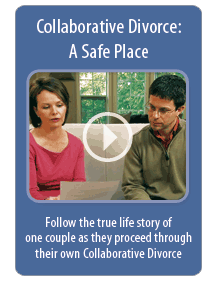Find A Collaborative Divorce Professional Here
Professionals
What do you need help with ?
Collaborative law is an alternative to litigation (which typically places lawyers, plaintiffs, and defendants in adversarial postures). Although aggressive advocacy may be appropriate in some criminal or civil cases, it is not appropriate for families in transition. First, a collaborative contract is signed, requiring parties to resolve their differences without going to court. Then, a team of collaboratively-trained professionals partners with the clients, to develop an agreement that is psychologically reasonable and legally sound. When an agreement is reached, it is signed and taken to the court for final disposition. If any client decides to file a complaint with the court before the process is completed, the collaborative team will be dissolved.
Collaborative divorce allows families to resolve the difficult issues of divorce with dignity and respect. The most destructive component of divorce is conflict and this process assists divorcing couples in remaining focused on the best interest of the family and children. Most people find it difficult to “get along” when divorcing because there are so many strong emotions present. However, every member of a collaborative team shares the goals of this process and has been specially trained to assist the couple in reaching truly satisfying solutions for all members of the family rather than each attorney fighting for only member.
Divorce is an unfortunate experience of life but the “litigation” process can make it even more devastating. Collaborative process is not “therapy” yet it can be very therapeutic as it provides a safe, calm environment in which to deal with difficult issues. People rarely feel safe or calm in court.”Divorce coaches” support individuals in staying focused upon reaching resolutions rather than being distracted by anger and resentment. This helps families make decisions concerning their future rather than trying to rescue what is left after the battle.
Call Collaborative Divorce Professionals today at 616-233-9160!
Avoid Court
Open Discussions
Good-Faith Negotiation Strategies
Reach Settlements
Focus on Resolutions
E-Brochure
Click above to view an E-Brochure with some helpful information.

